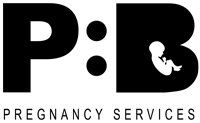There are many reasons why a woman may choose to express her milk: a poorly baby who cannot take milk from the breast, a poorly mother who cannot breastfeed, to give sore nipples time to recover before resuming breastfeeding, or a mother who doesn’t want to breastfeed but who wants to provide breast milk are just a few examples.You can use a hand pump or an electric breast pump. Pumps must always be used as instructed and it is imperative that they are cleaned and sterilised, whether a hand or an electric pump.
Using a breast pump
There are many different types of breast pump on the market, but essentially there are three models: a hand pump, a single electric pump, or a double electric pump. A hand pump may take a while to get results but is easily portable (handy for the odd KIT day at work if necessary!) and good for using when you want to express occasionally.
A single electric pump is probably a better choice if you want to express more often. As it is electric, it works faster. A top tip is to use your single electric pump on one side whilst feeding your baby on the other. You should initially use a slow setting on the pump, ensure the pump is placed comfortably on the breast. When the milk starts to be released, you can increase the speed if comfortable.
A double electric pump is even faster than a single as both breasts can be emptied at once. It is ideal for regular (daily) and longer term expressing, and are good for expressing for multiples.
Using your pump
You may want to research breast pumps before buying as there is a variety on the market. You can hire them too, so if you don’t plan to express for long, or you want to see which suits you best, you could always hire one to make sure if works how you want it to.
Always ensure the pump is clean before use, sterilising the parts that need to be totally clean.
Follow the instructions when you assemble it for the first time – some have lots of different parts that need to be pieced together – and keep the instructions in a safe place.
Contacts
Perfect Balance Clinic, www.pbclinic.com
La Leche League, http://www.lalecheleague.org/faq/pump.html






